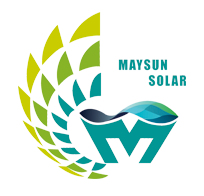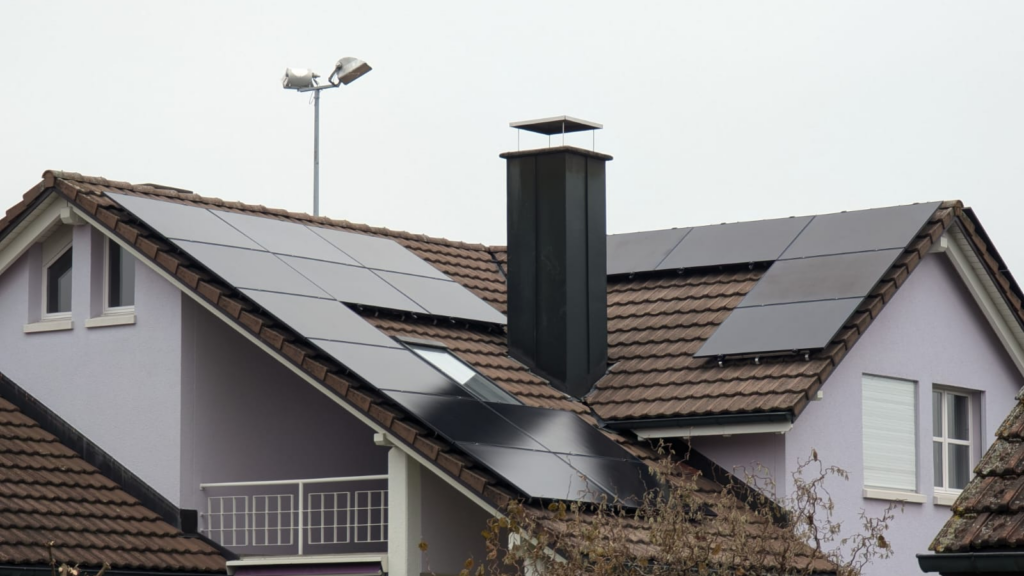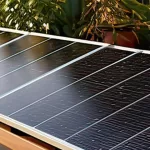With home energy costs continuously rising, consumers are increasingly seeking effective ways to cut expenses. Installing solar panels (photovoltaic systems) has become a popular solution that not only reduces electricity bills but also minimizes environmental impact. In this article, we explore five practical tips to help you maximize the benefits of solar panels, significantly lower your energy costs, and contribute to a greener future.

1. Choose High-Efficiency Solar Panels
Selecting the right solar system is critical for optimizing energy output and saving costs. Factors to consider include the energy consumption of the household or business, available rooftop space, and budget. Users adopting high-efficiency solar technologies such as HJT (Heterojunction) and TOPCon can generate 5% to 10% more energy compared to traditional PERC panels. For example, a French company using Maysun Solar’s 500W TOPCon modules generates an additional 1,500 kWh annually, saving approximately €240 (calculated at €0.16 per kWh).
Recommendations:
- Choose solar panels with a conversion efficiency ≥21%, such as HJT, IBC, or TOPCon technologies.
- For homes with limited roof space, prioritize high-power bifacial or N-type monocrystalline panels to optimize energy generation.
- Ensure the product has quality certifications such as TUV and CE for long-term stable performance.
2. Adopt Dynamic Pricing Strategies
Many European countries implement time-of-use electricity pricing, allowing households to store energy during off-peak hours and use solar power during peak times, effectively reducing electricity bills. A household using peak-valley pricing combined with an energy storage battery can charge during low electricity prices (€0.12/kWh) at night and use stored energy during peak periods (€0.40/kWh). This can reduce grid electricity consumption by about 2,000 kWh annually, saving around €560 per year.
Recommendations:
- Choose dynamic pricing contracts (such as EnBW or E.ON’s dynamic pricing plans) and optimize electricity usage with solar power.
- Combine with smart appliances (e.g., programmable water heaters, dishwashers) to operate during low electricity price periods, further enhancing savings.
3. Sell Excess Electricity
If your solar system generates more electricity than your household needs, you can sell the surplus electricity to the grid. This not only provides additional income but also further reduces electricity expenses. Many countries have introduced favorable feed-in tariffs or subsidy programs to encourage households to feed excess power into the grid. For example, in Germany, solar households can sell excess electricity through the “Feed-in Tariff” program, with prices varying by system size and contract duration. According to data from 2023, households in Germany can receive €0.08 to €0.10 per kWh. A household with a 10 kW system can earn over €1,000 annually from surplus electricity.
By understanding local power policies and incentives, you can better utilize the economic benefits of excess electricity, achieving greater financial returns and sustainability from your solar system.
4.Maintain and Clean the Solar System
The effective operation of a solar system depends not only on high-quality equipment and proper installation but also on regular maintenance and cleaning to ensure optimal energy production. Cleaning the panels twice a year can improve system efficiency by 5% to 10%, especially in dry and dusty environments.
Recommendations:
- Inspect solar panels every 3 to 6 months to remove dust and debris.
- Replace aging or damaged components in a timely manner, as inverters typically last 10-15 years, and batteries around 5-10 years.
- Integrate remote monitoring systems to detect anomalies and improve operational efficiency.
5.Utilize Government Incentives
In Europe, many countries offer various government incentives and subsidies to promote the use of renewable energy, particularly solar power. These incentives include tax deductions, feed-in tariffs, green loans, and reward programs. According to the European Renewable Energy Council (EREC), solar subsidies across Europe helped households save an average of 25% on installation costs and achieve about 15% return on investment within the first 5 years of system operation.
For example, Germany’s “Feed-in Tariff” program offers a subsidy of €0.08 to €0.10 per kWh for solar users. A household with a 10 kW system generating 10,000 kWh per year can earn €800 to €1,000 annually from surplus electricity. This not only offsets electricity costs but also generates additional income.
By fully utilizing these government incentives, users can reduce upfront installation costs, increase system economic benefits, and accelerate the return on investment for solar projects, making solar energy investments more feasible and attractive.

Conclusion
By implementing these five tips, you can maximize the potential of your solar panels, significantly reduce electricity expenses, and contribute to a sustainable future. Solar energy is not only a clean, renewable source of power but also a long-term economic benefit for households. Start optimizing your solar system today and enjoy the savings on your electricity bills!
Since 2008, Maysun Solar has focused on producing high-quality photovoltaic modules. Our range of solar panels, including IBC, HJT, TOPCon, and balcony solar panels, all incorporate advanced technology, excellent performance, and guaranteed quality. Maysun Solar has successfully established offices and warehouses in numerous countries and built long-term partnerships with excellent installers! For the latest quotes on solar panels or any photovoltaic-related inquiries, please contact us. We are dedicated to providing you with safe and reliable products.

How to Effectively Clean and Intelligently Maintain Photovoltaic Systems for Optimal Performance?
Explore how scientific cleaning and intelligent maintenance can ensure the efficient operation of commercial and industrial photovoltaic systems. Practical advice covers module cleaning frequency, monitoring system configuration, and long-term strategies for energy savings and performance enhancement.

2025 European Photovoltaic Policy Map: Deployment Paths and Regional Strategies for Commercial and Industrial Photovoltaics
A comprehensive analysis of the 2025 European commercial and industrial photovoltaic policy map, focusing on deployment strategies, incentive comparisons, and zero-investment models to support businesses in achieving an efficient and green transition.

Empowering Factories with Solar Energy A Strategic Tool for Controlling Production Electricity Costs
Commercial and industrial solar is becoming a key solution for factories to reduce electricity costs and hedge against price fluctuations. This article systematically analyzes its deployment models, cost advantages, and sustainable value pathways.

How Businesses Can Offset Carbon Taxes with Solar Power
This article analyzes the latest carbon tax policies and photovoltaic deduction strategies, helping European businesses legally reduce taxes, increase profits through solar investment, and achieve a win-win situation for both economy and environment.

Forecast and Response: Seizing the Next Decade’s Growth Dividend in Europe’s Commercial and Industrial Photovoltaics Market
Maysun Solar analyzes the growth trends of commercial and industrial photovoltaics in Europe over the next ten years, from policies and ESG to technological innovation, helping companies seize the initiative in the energy transition.

How to Calculate Solar System ROI and Optimize Long-Term Returns?
Solar power is becoming a key solution for businesses to reduce costs and improve efficiency. Accurately calculating ROI and optimizing long-term returns are essential to maximizing investment value.



